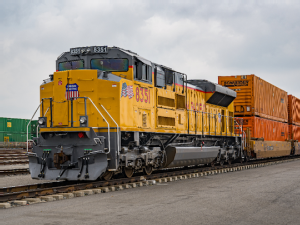Avison Young today announced that it has negotiated the sale of a 1.75 million-square-foot (msf) trucking terminal portfolio with properties in core logistics markets across the United States. The portfolio is owned by CenterPoint Properties and includes 53 truck terminals in key industrial markets, including Chicago, Atlanta, Dallas, New Jersey, New York, and Philadelphia, among others.
Avison Young Principals Erik Foster and Mike Wilson, head of the firm’s Industrial Capital Markets Group, represented CenterPoint Properties, based in Oak Brook, IL, in the sale to institutional investors advised by J.P. Morgan Asset Management.
“This portfolio is an integral part of the logistics infrastructure that supports e-commerce growth on a national level,” comments Foster. “This expansive trucking property portfolio allows the new owner to supplement its existing industrial investment platform and further position its funds for strong long-term growth.”
The portfolio has a strong geographic diversification, with many properties located in growing population centers with access to the nation’s top rail, port and airport distribution hubs. Most properties are single-tenant properties, leased to top tier logistics tenants, including FedEx, UPS, YRC Inc., Amazon, XPO Logistics and SAIA Motor Freight Line. Approximately 60 percent of the portfolio’s square footage is in the Northeast (New York, New Jersey, Philadelphia and other cities), with the Midwest having nearly 20 percent of properties (Chicago, Milwaukee, South Bend, Indianapolis, Columbus, Cleveland and others).
Truck terminals operateas a supply chain management tool that allows companies to sort and re-organize incoming freight andfacilitate the rapid and high-volume handling and movement of goods to their final destination. A retailer utilizes these facilities to decrease delivery times to keep their competitive advantage and turn over product at a higher velocity.
“Transload facilities are a niche segment within the industrial sector and are an integral part of the infrastructure that supports e-commerce,” comments Foster. “They operate as national, regional and local hubs to provide the linkage that allows goods to reach their final destination.”











